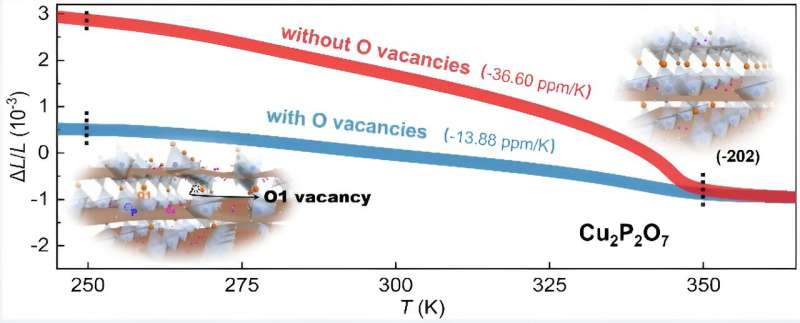Phys.org September 14, 2023
Negative thermal expansion (NTE) materials can be applied to suppress thermal expansion of other materials, forming composites with zero thermal expansion (ZTE). However, the shortcomings (e.g., high density, narrow working temperature window) inherited from various NTE materials hinder the applications of corresponding ZTE composites. An international team of researchers (China, Poland) used modified Cu2P2O7 by reducing oxygen deficiencies, which had a relatively low density and strong NTE over a wide temperature range, to composite with 2024Al. When the volume content of modified Cu2P2O7 was about 50%, the composite Cu2P2O7/2024Al showed ZTE effect, and the linear coefficient of thermal expansion was about −0.014 ppm/K at 273–333 K. The ZTE composite also exhibited a high specific thermal conductivity, significantly superior to other existing ZTE materials. Due to the matched moduli between Cu2P2O7 and 2024Al, the ZTE composite displayed good machinability. According to the researchers the current ZTE composite may have great potential applications in the fields of high-precision electronics and optics… read more. TECHNICAL ARTICLE 1 , 2

Credit: Xie Lulu